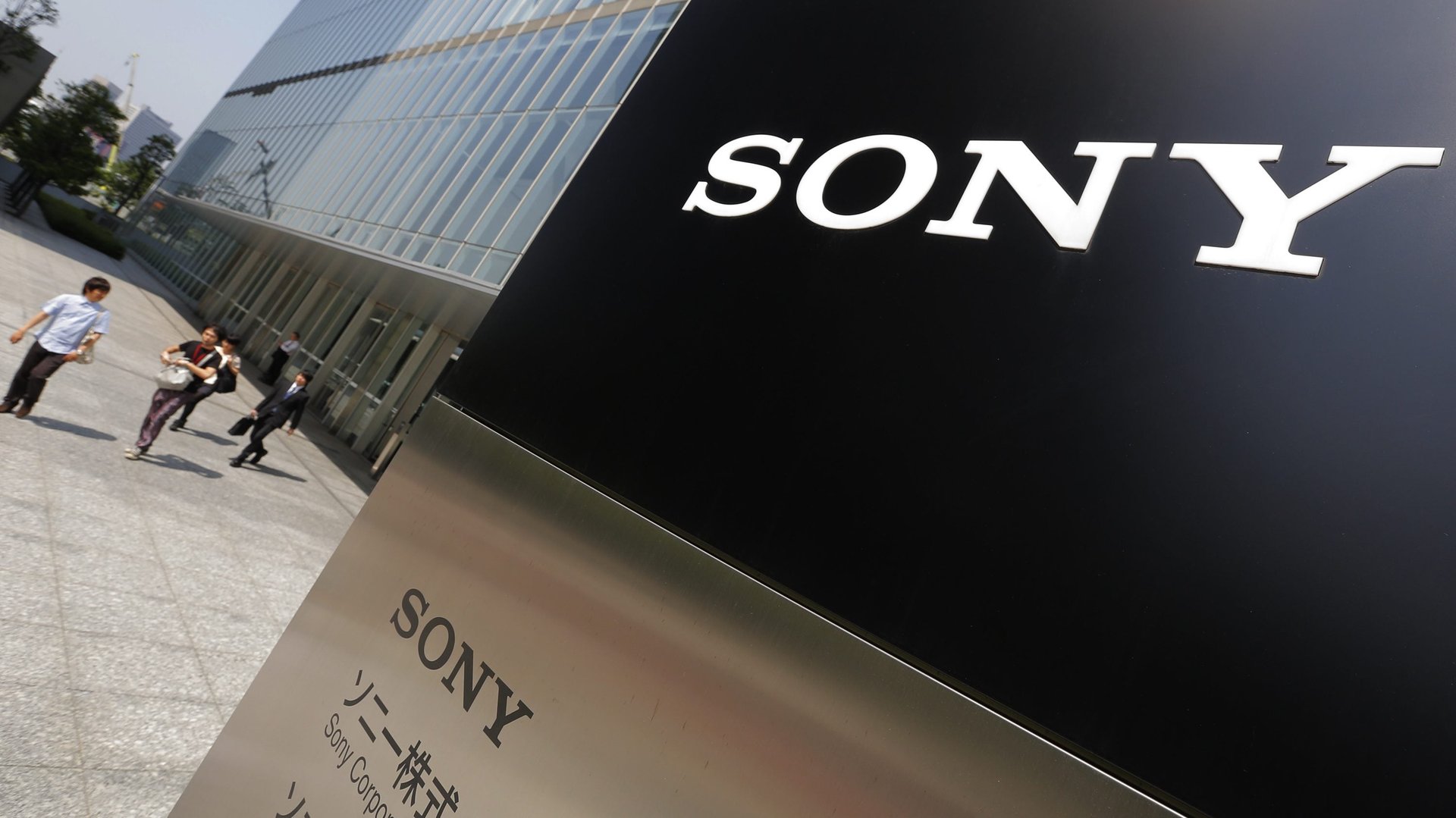Sony is terrified of the “dramatic shifts” taking place in how we consume entertainment
One of the world’s biggest movie studios is writing down nearly $1 billion because of the ever-changing way we consume entertainment.


One of the world’s biggest movie studios is writing down nearly $1 billion because of the ever-changing way we consume entertainment.
Japanese entertainment juggernaut Sony announced in a filing today that it will take a $962 million goodwill-impairment charge against its film and TV division, Sony Pictures Entertainment, in the third quarter of 2016. The accounting move came after the company reevaluated the way it projects profitably for its movie business.
It was driven partly by “dramatic shifts in the home entertainment space currently being felt throughout the entire industry,” Sony CEO Kazuo Hirai and outgoing Sony Entertainment CEO Michael Lynton, who’s leaving for the soon-to-be IPO-ing owner of Snapchat, reportedly said in a letter to employees the same day.
The shifts Sony were likely referring to has to do with the way we consume entertainment in the digital age:
- Streaming video-on-demand services are proliferating worldwide, and pushing out other forms of home entertainment. Netflix’s subscriber base hit an all-time high last quarter, and is nearing a milestone 100 million members worldwide.
- Cord-cutting is going global. Both Netflix and Amazon Prime Video expanded aggressively abroad last year, bringing their services to most of the world. They’re altering the way people experience TV and film around the globe, as they’ve done domestically.
- Viewers are less likely to pay for the theater when they can get cinema-quality experience for less, in the comfort of their own homes, as TVs and projectors improve. At the same time, studios are negotiating with theaters to get movies from the cinema to homes more quickly. (Some operators are turning to higher-end, luxury theatergoing experiences to get folks in the door.)
- The 3D TV revolution ended almost as abruptly as it started, with manufacturers like Samsung and LG eschewing the very technology they pioneered. They never took hold with consumers, who have since turned to ultra high-definition TV sets.
- People aren’t buying DVDs and Blu-rays the way the used to. US disc sales fell nearly 10% to $5.4 billion in 2016, and were overtaken for the first time by spending on subscription-video services like Netflix and Amazon Prime Video, Variety reported.
- It costs a fortune to make prestige TV and films today. Sony co-produced both Netflix’s The Crown and The Get Down, which were each hugely expensive. Shows like those drove much of Sony’s TV revenue last quarter, but Deadline reported that lower budgets will be key for the company moving forward.